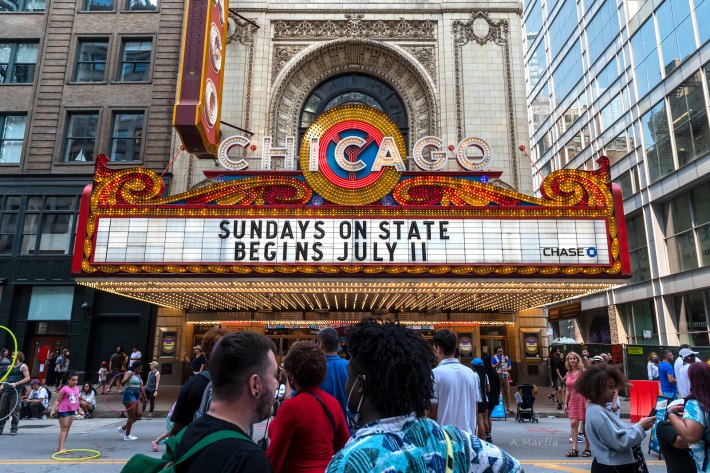Someone had to cave and last night, it was the Senate.

The upper chamber had fought as long as it could to adjust the House transportation bill so it wouldn't expire when the GOP controls both chambers of Congress. But senators were never willing to actually let the Highway Trust Fund go broke. U.S. DOT would have started cutting back on reimbursements to state DOTs as of today in the absence of an agreement.
After the House rejected the Senate’s amendment yesterday, hours before representatives were due to return to their home districts for the five-week August recess, it seemed the Senate had no choice. Then, news broke that the House was going to stick around a little longer to keep fighting about the border crisis.
Could the Senate have taken advantage of the House’s presence to toss the football back to them, on the assumption that the last team holding it will get blamed for the fumble? Maybe. Maybe the House would have been the one to cave, then. Maybe they would have sent the transportation industry into a tailspin. In a recent poll, 85 percent of transit agencies said they would implement service cuts if that happened.
At least we were spared that. But perhaps not for long. Former U.S. DOT official Beth Osborne, now at Transportation for America, noted that each extension seems to be getting harder. "The easy ways to pay for the program are gone," she said. "It’s going to get harder doing this with bubble gum and band-aids."
Who cares?
Last night on Twitter, Cap’n Transit paid me the backhanded compliment of my life by saying:
Still baffled. Why pay a smart reporter like @StreetsblogUSA to waste her time and ours on highway funding nonsense? http://t.co/v36mow8qwz
— Cap'n Transit (@capntransit) August 1, 2014
The Cap’n likens the trust fund apportionment to unjust servings of pie -- “Imagine that your dad makes great pie, but you’ve got a selfish older sister who hogs the pie.” You get where this is going. Do you join your piggish sister in lobbying for more pie for her greedy pie-hole (in hopes that your tiny sliver grows too), or do you demand fairer servings of the existing pie?
There is a lot to be said for the Cap’n’s point of view there.
“It’s like, ‘Are we going to shoot ourselves in the foot or are we going to shoot ourselves in the head?’” said Eno Center for Transportation President Joshua Schank, admitting that he, too, finds the current political drama “uninteresting.”
“It’s just so silly and pointless," Schank said. "The real questions we should be fighting over are how do we pay for it and how do we spend it? And we’re not fighting over those things.”
Osborne adds that it's hard to have a conversation about radically shifting resources when you’re cutting back. "Reforms come when there’s more money on the table," she said. "The pot gets bigger and we figure out how to better distribute it."
Schank also notes that transit relies heavily on federal trust fund money, especially in the most transit-dependent places. “If you didn’t have this program, then the New York City subway is going to start breaking down very fast,” he said. “So if I’m for transit, I don’t know that I would be so quick to discard the program.”
He would, however, transform it radically, relying more on discretionary grant programs paid out of the general fund, and less on formula funding out of the Highway Trust Fund, giving more flexibility to states and localities.
Reformers will keep fighting for a future with a very different balance between roads and transit. That's why these bills continue to matter, insofar as they present an opportunity to make changes to how transportation is prioritized and funded.
But the next 10 months will be much like the last five years for states, cities and transit agencies that have been trying to operate -- and sometimes even grow -- in the face of enormous uncertainty.
Art Guzzetti of the American Public Transportation Association holds out hope that “maybe there will a little magic at the end of the year,” noting that even though the extended the trust fund through May, Congress doesn’t have to wait till the last minute like they usually do. “They’re at liberty to take it up during the lame duck,” he said.
But the most likely scenario is that the volume gets muted on this conversation until May, when we get to do this whole dance again.




